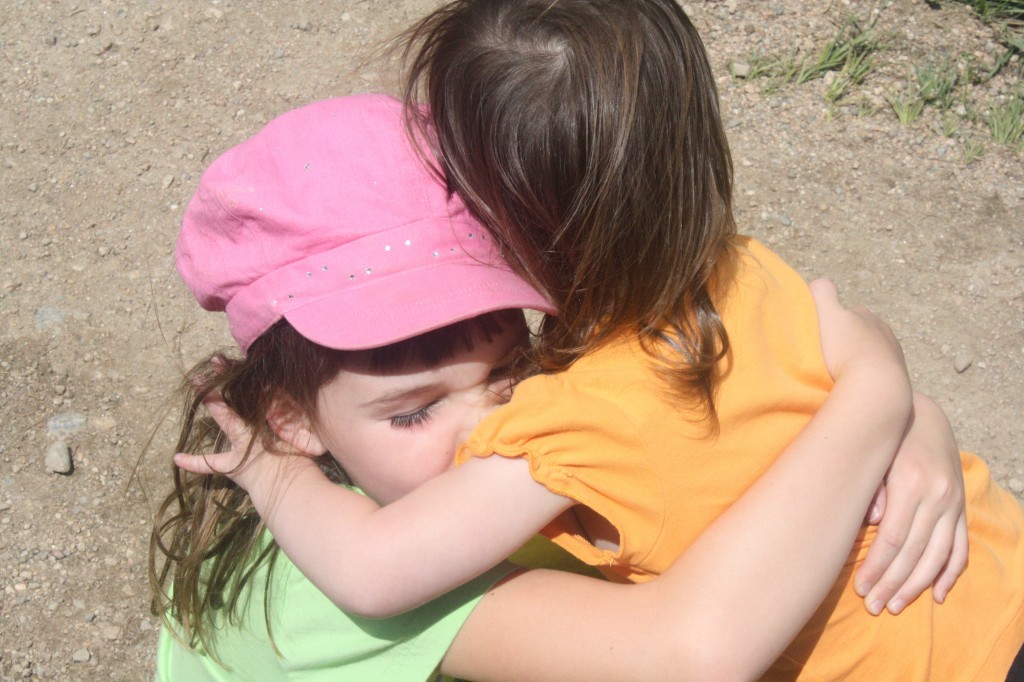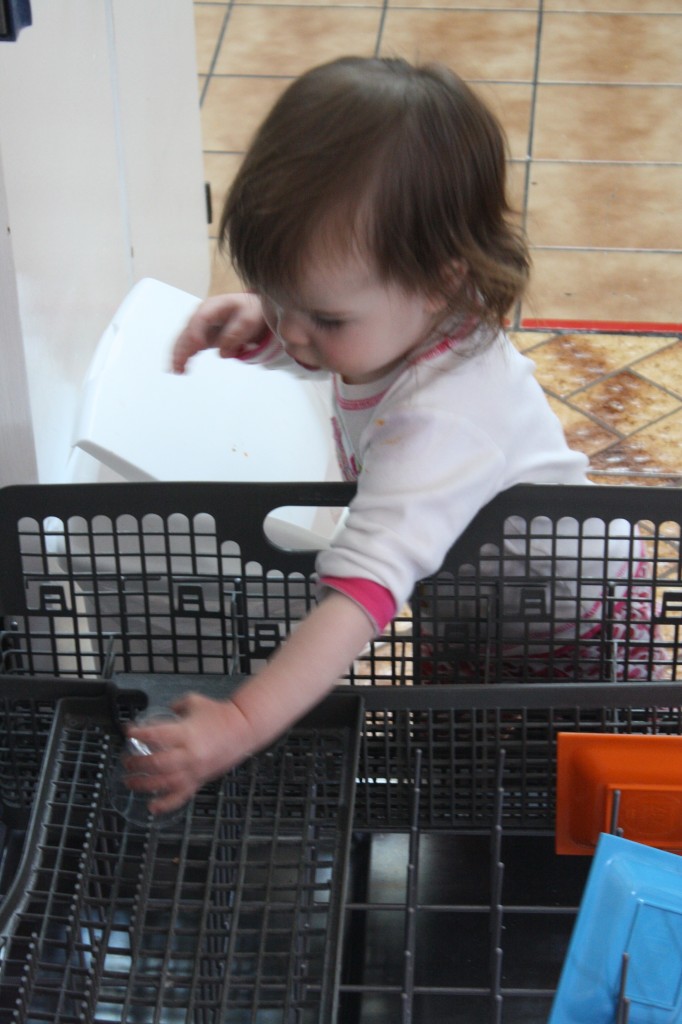 Today is the final installment of the Around the World Parenting Blog Carnival, in which we have been exploring Christine Gross-Loh’s illuminating book Parenting Without Borders. In case you are joining us for the first time, you can learn more about the Around the World Carnival here. Though we are finishing our discussion on Parenting Without Borders, we made an exciting announcement last week with our introduction of The Brilliant Book Club!
Today is the final installment of the Around the World Parenting Blog Carnival, in which we have been exploring Christine Gross-Loh’s illuminating book Parenting Without Borders. In case you are joining us for the first time, you can learn more about the Around the World Carnival here. Though we are finishing our discussion on Parenting Without Borders, we made an exciting announcement last week with our introduction of The Brilliant Book Club!
The Brilliant Book Club is a collaborative project among five bloggers: Lauren Apfel of Omnimom, Deb CG of Urban Moo Cow, Sarah Rudell Beach of Left Brain Buddha, Jessica Smock of School of Smock and Stephanie Sprenger (Me!) of Mommy, For Real. For more information on this new venture, read our introductory post here, but please note, the giveaway has ended. (Congratulations, Allison, on winning a copy of Playing to Win!)
Back to our final discussion on Parenting Without Borders: This week we examine the section of the book that focuses on the character of children. Gross-Loh discusses two aspects of character- raising kindness and raising responsibility. For me, the thread that ties these two discussions together is the American cultural push for respecting our children and preserving their authentic choices, two things that are extremely noble and look good on paper, but often get taken too far. One disturbing trend mentioned in this chapter is that “empathy has declined over the past thirty years among U.S. college students, while narcissism has risen.” Ouch.
Are Manners Overrated?
Gross-Loh highlights the importance of “old-fashioned manners,” a practice that may seem obsolete or no longer relevant to some American parents. The current parenting trends are sometimes hard to follow; one day it is a parent’s responsibility to teach their children manners, and then all of a sudden please and thank you are overrated and we actually shouldn’t care if our children don’t use them. I struggle with the concept that, according to some styles of parenting, we shouldn’t focus on teaching our children to be polite, because it doesn’t honor their authentic tendencies.
Don’t get me wrong- there is much to appreciate in the school of thought that values respecting children’s boundaries, natural inclinations, and allowing them to make their own choices. I am a big fan of “body safety,” taught by Parenting Safe Children; one of the principles suggests that you shouldn’t force your children to greet others with a kiss or hug. I wholeheartedly agree with this value, but it’s important to keep in mind that the underlying philosophy is not based on allowing our children to snub grandma or flip the metaphorical bird to stinky Aunt Connie. We provide them with several choices that are comfortable to them as to how they prefer to politely greet others; we respect their right to be in charge of their physical bodies, but we are not allowing them to be rude.
So why are manners and greetings important? Gross-Loh asserts that, “we teach kids manners because we believe that social niceties pave the way toward kindness.” Certainly we want our children to have kindness and compassion that is authentic and natural, but what is our role in teaching them? When parents treat their kids as peers, tolerate disrespectful language, and allow them to choose whether or not they “feel” like apologizing, what are we really teaching them? According to Gross-Loh,
We are not teaching them positive lessons about being authentic and true to themselves. We are teaching them to feel self-important and entitled instead of compassionate and kind, showing them that it’s totally okay to put their happiness and their needs above others’.
I was raised with the old-school Midwest values of being a “nice girl.” Sometimes this makes me cringe, as I cannot fight my innate urge to make people feel comfortable, sometimes at my own expense. However, most of the time, I am proud of my empathetic, considerate qualities; I make a conscious effort to be welcoming and avoid making others uncomfortable. I think it is important that these values are instilled in my children as well.
Children need practice considering other people’s needs and desires; while their natural inclination might be to pair off with a close friend and pursue their own pleasure, shouldn’t we teach them to include the quiet child who is standing alone? When they receive a boring gift from a relative, though their honest response is that they would have rather gotten something else, shouldn’t we teach them that this reaction is hurtful to the gift-giver? Or is that being “disrespectful” of their “true selves?”
Because I have been mindful of this new parenting trend to stop insisting that our children use manners, I sometimes feel embarrassed when I automatically chime in with, “What do you say?” or “Say thank you,” but I find I simply can’t help it. It feels unnatural for me to turn my head the other way and whistle a tune when one of my children “forgets” to use their manners. To return to the discussion on Hoverparenting, it is challenging to know when to step in, and when to back off and allow them to navigate their own course. Do we remind them to be polite, but sit quietly by when they are in a tug-of-war over a toy with their friend? I supposed you are sick of this point I continue to drive home, but once again it seems to be all about finding balance.
Returning to the Basics of Kindness
While many disagree about whether it is appropriate to force a toddler to apologize, when our 23-month-old hits her 7-year-old sister or pulls her hair, we put her in time out, and then we take her to apologize. While she generally apologizes willingly, if she refuses, we speak her apology for her, and then together we ask her sister what she needs to feel better. If she would like an ice pack or a drink of water, our toddler will then bring her one. Making things right seems to be a step above spewing out a rote apology; it has been rewarding to watch our toddler’s sense of empathy evolve.
One day, my oldest daughter was crying because she had injured herself. My toddler, completely removed from the incident, ran to her quickly, hugged her, and then went in search of her own favorite stuffed animal with which to comfort her big sister. It was one of those moments when I thought, “It’s working.” Her sense of compassion and empathy was developing, partly on its own, and partly because of practices she had learned and observed at home and at childcare.
One of my favorite pieces of advice in this chapter comes from a Japanese mom, “Always stand in the other person’s position and imagine things from his or her point of view.” (Author’s note: Ahem, this skill can be quite useful in marriage as well.) We have spent a lot of time discussing the Golden Rule with our second grader; these fundamental concepts of kindness are crucial to becoming genuinely compassionate. Another tip I found helpful came from Colorado psychologist Shawn Smith: “Actions can come before feelings.” Or as we say in our family, “Fake it ’til you make it.”
A few weeks ago, we had some close family friends over for dinner. Our second grader was sullen and sulky; she had been moody ever since learning her best friend was moving away, and she didn’t want to play with the daughter of our guests. I was acutely uncomfortable watching my daughter’s pal stand by awkwardly, waiting for her grumpy friend to “get in the mood” and play. I quietly pulled my daughter aside and reminded her that she didn’t need to feel excited about playing with her friend right that second, but she was being rude and hurting her feelings. I tried to explain, “Fake it ’til you make it,” and told her that if she just tried playing, even though she didn’t feel like it, she would make her friend feel better and she would probably end up having fun. She did, and it worked.
Responsibility and Kindness Go Hand in Hand
When I read the Raising Responsibility chapter, I wasn’t surprised to hear that children in other cultures are far more helpful around the house; in Guatemala, Peru, Japan, and even Sweden, older children take care of their young siblings, run errands, and have regular chores. They are important, contributing members of the family. We recently developed an after-school and before-bedtime job checklist that our 7 year old completes, and even that is sometimes a struggle. Gross-Loh reminds us that children naturally love to help, and they benefit from feeling like competent, appreciated members of the family.
The first thing that sprang to my mind upon reading this chapter was how much more my toddler does to help out when she is in her Montessori learning center environment. Along with the five other children, ages 1-3, my daughter sets the table, serves her own food, scrapes her plate into the trash, loads the dishwasher, wipes her face, and puts her washcloth in the receptacle. And that’s just at snack and lunchtime! I am reminded of how much more my children could do at home, if only I would give them the opportunity. It is so easy to forget how much our children are capable of.
This lack of interest in giving our children responsibilities seems directly connected to our ambivalence about directing their manners, greetings, and caring interactions with others. The tendency to coddle them, allow them to treat others (and us) poorly, and wait on them seems to spring from the mentality that we don’t want to infringe on their authentic inner experiences. Well, I call bullsh*t. As much as I want my children to freely pursue their own delights, act in a way that is internally motivated, and be true to themselves, I refuse to sit idly by and allow them to become self-indulgent pigs.
Does that sound too harsh? While I am not interested in engaging in power struggles with a stubborn toddler who has neglected to say “please” in order to exert her own will, there are some lines I am unwilling to cross. I will continue to prompt my children to use manners, apologize when they have wronged someone, take care of their own belongings, demonstrate pride and ownership in our home, and treat others kindly. There are some values that never go out of style.
We sincerely hope you have enjoyed our discussion of a fascinating and helpful book. I took away so much from each chapter of the book; from eating habits to academics, from cultivating independence to creating responsibility, I learned so many healthy, practical tips from parents around the world. If you haven’t yet read the book, I hope this series will inspire you to do so. Parenting Without Borders is an excellent reminder that all parents would benefit from opening their minds to exploring a different path, questioning their reasoning and motivation for their parenting choices, and finding the balance that comes from integrating different cultural practices into their own unique child-rearing decisions.
Read all the posts in our final series below, and many thanks for joining us in this enlightening journey!
~Stephanie
Deb of Urban Moo Cow:Please Don’t Make Me Explain the Importance of Thank You
Jessica of School of Smock: Carry Your Own Bag: Raising Kids Who Aren’t Helpless
Lauren of omnimom: My Biggest Parenting Critic Right Now? My Eight Year Old
Sarah of Left Brain Buddha: Character, Compassion, and Confucius: On the Ying and Yang of Parenting
 Don’t forget to pick up a copy of Hilary Levey Friedman’s Playing to Win, and join the conversation as The Brilliant Book Club begins our first series of posts on the book, Monday, September 30th! Can’t wait to read along with you!
Don’t forget to pick up a copy of Hilary Levey Friedman’s Playing to Win, and join the conversation as The Brilliant Book Club begins our first series of posts on the book, Monday, September 30th! Can’t wait to read along with you!












LOVE this post. I feel like I have done both of my children a disservice by not having them do more around our home on a consistent basis. Reading this really helped me remember that it is time to do that!-Ashley
It’s so hard for me to remember too, Ashley. Sometimes it’s just easier to do things ourselves!
I don’t think it sounds too harsh at all that you insist on having your children treat others with respect. It’s more than a little bit disturbing that in college students, empathy is down and narcissism is up and it makes me feel better about the future knowing that excellent mamas like you are helping their children to think about how it feels to be in the other person’s shoes. In fact, it makes me feel A LOT better. So thank you.
PS- Poor stinky Aunt Connie. She’ll never get a hug.
Isn’t that empathy thing disturbing? And thanks for noticing Aunt Connie. Sometimes I think my “jokes” get missed. 😉
Great point, Stephanie! Here in the South, we are definitely big on teaching manners and many view a lack of manners as outrightly disrespectful. I am struggling with getting them to help round the house. My 8 year old is the messiest and, just the other day when I told her to straighten her room, she replied “But I like it this way!” I was conflicted by the fact that, in some ways she was right. It was her room and the mess didn’t not bother her. On the other hand, however, I see that she has just tossed clothes in the floor or shoes haphazardly and it makes me feel as if she is ungrateful for the things she has been given. It is a fine line and I hope we can find a suitable compromise – soon! 🙂
Oh, that line, Lisa! Where is the line? You are definitely right- some things should be their choices and we should lay off. It’s hard to decide when to call it, isn’t it?
If I start, I will go on for days. I will simply say… Please keep teaching manners. Please continue to make them show compassion, whether they feel like it or not. And please continue to give them chores and responsibilities around the house. Thanks. 🙂
Thanks for that validation, Christine. I always trust and appreciate your perspective. I just can’t ignore rudeness and lack of manners. 🙂
I LOVED the carnival series and I’m happy you’re not leaving us in a vacuum. This post really hit home as I have the same natural tendencies as you of making everyone feel comfortable ad absurdum. And I go through the same inner struggles you do when it comes to my kids. I loved how you handle conflict between your two daughters and once one-year-old is old enough I would like to start doing the same i.e. speak his apology for him. We were also in a very similar situation recently when 4-year-old sulked and pouted throughout one-year-old’s birthday party (can’t imagine why) and I had to explain to him that all his friends showed up for him. Must say it didn’t help, but I’ll try your approach next time – you don’t have to be excited about it, just do it. Another terrific post from you, my friend!
4 is HARD for that! (And other things, as evidenced by your fantastic post today!)
I think we all took very similar positions on this reading! I agree teaching manners is so important. Teaching them to say hi isn’t stifling their creativity, it’s teaching basic respect. And I too am shocked when I see how well my children clean up their toys and help out at daycare – clearly they can do more than I often expect of them!
Funny how you and I both mentioned the childcare center responsibilities! I know I need to be more consistent at home. And yes, we were all on the same page today!
It sometimes seems I am squashing my daughters’ free spirits by implementing rules and manners. There is so much raw beauty in the way their natural behavior reflects their feelings. Don’t read me wrong, I’m not saying I am not trying my damnedest to raise polite, responsible children. But I have seen many adults who are so out of touch with their feelings and out of practice in sharing them that they aren’t healthy. It probably depends a lot on the premise of parents teaching. I dig your ‘fake it until you make it’ approach. It isn’t saying their feelings don’t matter but instead, ‘These are things we must learn to practice so that we can get along with other with others.’
That confounding line- when do we allow them to just “be” their natural selves, and when do we impose our order and civility upon them? I’m sure I’m only getting it right a percentage of the time…
Yes: “we respect their right to be in charge of their physical bodies, but we are not allowing them to be rude”. Great distinction.
And with regard to being a “nice” midwestern girl… my dad is famous for saying that all strengths overextended become your weaknesses. You were raised “nice” and sometimes let people walk all over you; I was raised in a boisterous Italian-American household in the suburbs of New York, and sometimes I’m too abrasive. I know “nice” people sometimes wish they could be more direct like me, but sometimes I wish I would just keep my mouth shut. Ya know? It’s all a work in progress.
Speaking of which, your post was WAY nicer than mine. 😉
And I’m impressed you got stuff in about the responsibility chapter; I was zapped by the end of the kindness section!!!
That’s a great point, Deb, and you are so right about wishing you had the qualities you lack. I wish I could be more assertive and not care so much about other people’s reactions. And I’m not sure I agree- your post was pretty frickin’ nice. Also, it may have been unwise that I added the responsibility stuff- there was just TOO much to talk about. I wished I’d had two separate posts…
Wow, I love how you really point out the challenges — and sometimes contradictions — in raising kids who are confident in making their own choices but also able to demonstrate kindness, politeness, and empathy. Such a tough balance. And I love how everyone has pointed out that their kid does SO MUCH more in preschool, day care, or school than they do at home. Wonderful post, Steph!
Funny isn’t that? If I was consistently expecting the things my daughter’s childcare center did, things would be a lot different in our house! And yes, the balance is such a challenge. I worry I am missing it half the time…
I think manners go a long way. My parents are British, and instilled a lot of things into me when I was growing up, and I plan on instilling most of it into my daughter, too. She’s currently in one of those phases where she finds it hilarious when I get angry at something she’s doing (like biting my shoulder repeatedly when I’m holding her in the grocery store). It takes so much of my strength not to laugh when she does that, but I always kneel down, tell her she is not treating me with respect, and then I ask her to tell me she’s sorry.
As for chores… I’m all about having the kids pitch in around the house. But I will not be expecting my daughter to do her own laundry and iron her own school uniforms from grade 6 onwards like my mother did! It was ridiculous!!!!
Another awesome post – thank you!
Girl…
I had a throw down at Moo’s.
What in the God for loving sake is wrong with people?
Are we not supposed to teach them to respect others?
When you teach them these things, and they put it into action, they will see the reactions of others and see that it is a positive thing to do…compassion, kindness and respect.
So you mean to tell me that in those children’s homes that do not use manners are running amok telling their mom (basically telling them) Get me the banana. Wash my shirt.
Hell no.
Let me tell you…
I grew up having to use my manners. “Having” became I need to do this because it is right, it is respectful and I would like the same treatment in return.
My son says please and thank you and sorry and your welcome without prompting. He tells the crossing guard thank you he gives the baker a hug when she sneaks him a cookie…is that damaging him as a person?
Parents who aren’t teaching this is raising a society of assholes.
Part of being human in society is going against natural inclinations, for, as you say, kindness. Manners are a way of acknowledging another’s importance, equal to that of the self.
Of course children are meant to be guided in this, as kindness and empathy often don’t come naturally.
Okay, there’s my non-parenting two cents. 😉
Oh wow. There is just so much goodness in this post. I completely agree with how you handle apologies, even when the little one is at fault. We do something similar in our house, and I had to giggle at the idea of your older daughter requesting an ice pack. Those are all the rage in our house right now 😉
As for the fake it ’til you make it–YES! It’s so difficult for these little ones (and sometimes these parents…) to see past their own noses, but I think empathy and understanding are important concepts that often go by the wayside when instilling what we think our valuable traits in our children. I’ve seen so many parents ask their kids to “tell me what you’re feeling,” rather than “how do you think so-and-so are feeling?” I do fear we’re raising a self-absorbed generation.
Great post, as always!
In my book, I think manners never go out of style. I am huge on reinforcing them with my kids. And I love how you delineate all the reasons this is important–you are teaching them way more than “please” and “thank you”. Preach it!
You hit on so many important points, Stephanie. The subtext of them all seemed to me about developing kid’s sense of agency, and the struggle to figure out how much direction to offer. It shows what a sensitive, caring mom you are! Great post. And thank you for linking up with the Sunday Parenting Party. I appreciate the support!
this is a really interesting post. Its nice to read a post that is gently challenging some of the parenting approaches (that I myself have been trying to adopt) that centre around the child getting what they want – or at least seem to. Recently we realised that we’d ‘been doing it wrong’ with our parenting approach. We’d been permissive rather than setting clear boundaries but reinforcing them with love. I’m starting to shift my opinion and approach to parenting to one where I do think that its important to say please and thank you (despite having a blog post from last year saying the opposite!). Your post has really given me something to chew over. Thanks so much for linking to the Sunday Parenting Party, I’ll be featuring your post this weekend and pinning to the SPP pinterest board is Rachel hasn’t got there already.
Thank you SO much for that thoughtful comment- I can’t tell you how much I appreciate it! It is such a hard balance isn’t it? We want to trust our instincts, but there is so much information out there… Thanks for stopping by!
I really like this conversation!
I also believe in the value of being polite but I’m going about it a bit differently. Instead of telling my son to say thank you, please, or sorry, I tell him I’d really appreciate it if he asked me with, “please.” or if he said, “please,” I would do it with a happy heart, although I will do it regardless and I don’t make him say it. With, “thank you,” I didn’t even need to do that. We just modeled, “thank you,” to him consistently since he was a babe and he caught on and really enjoyed saying it when he was ready – he was around 20 months, maybe slightly older. Sometimes when he says, “thank you,” I’ll tell him I’m happy he appreciates it because I want him to know that I value manners.
He hasn’t gotten up the courage to say much to people outside the family yet and I will model it for him, but I won’t ask him to do it. I think (hope) it will come when he is ready.
At the same time, I do talk about being polite and having good manners so he knows it is something we value. I sometimes suggest he could say certain things like, “hello” or “bye” because it is polite or good manners, but I always leave that decision up to him. It wasn’t until after he was 2 that he started saying, “bye” to people and today at almost 2.5 was the first day he did it directly to people he didn’t know. He is shy and it just takes some time to grow into it.
I was concerned about empathy since our son doesn’t have any siblings, but he seems to have figured that out through modeling, too. One day he was kicking me as I tried to change his diaper and I ended up leaving the room. He came out of the bathroom and said, “Mommy crying,” and gave me a big, strong hug. I told him I wasn’t crying but was frustrated and we talked about it. I’m fine that he has other ways to say, “sorry” without the word. If necessary with others, I’ll say, “sorry” for him until he is ready.
As for the responsibility, I agree that kids want to help and it makes them feel like a part of the family. I do find it hard as a parent to always let him help, but I try to hide that frustration because I’ve learned that the more I let him do, the more he can do. And he really has become helpful! At 2 he successfully unloads the dishwasher (with us putting stuff up high), puts away laundry, sets the table, cleans up messes when he spills on the floor, vacuums, dusts, and helps me shine. And he loves it all because we are doing it together. It isn’t the most efficient or most thorough but he values his contribution and I want to keep that. The only thing that is sometimes a struggle is the picking up toys but I understand I can’t make him do anything, so I ask him to help us because I want a clean house and I talk to him about how putting things away is showing respect to those things. It is important to me that I ask him “will you please” instead of command him to “pick up your toys!” To me it is a subtle difference that acknowledges he is a whole person with a will of his own. I think he’ll grow into it. Depending on the day, he will put items back when he is finished playing without being asked. He is always much more willing to help if we are doing the same task together. Otherwise he gets sidetracked with something more interesting – which is usually whatever I’m doing.
Thanks again for a great post that makes me think!